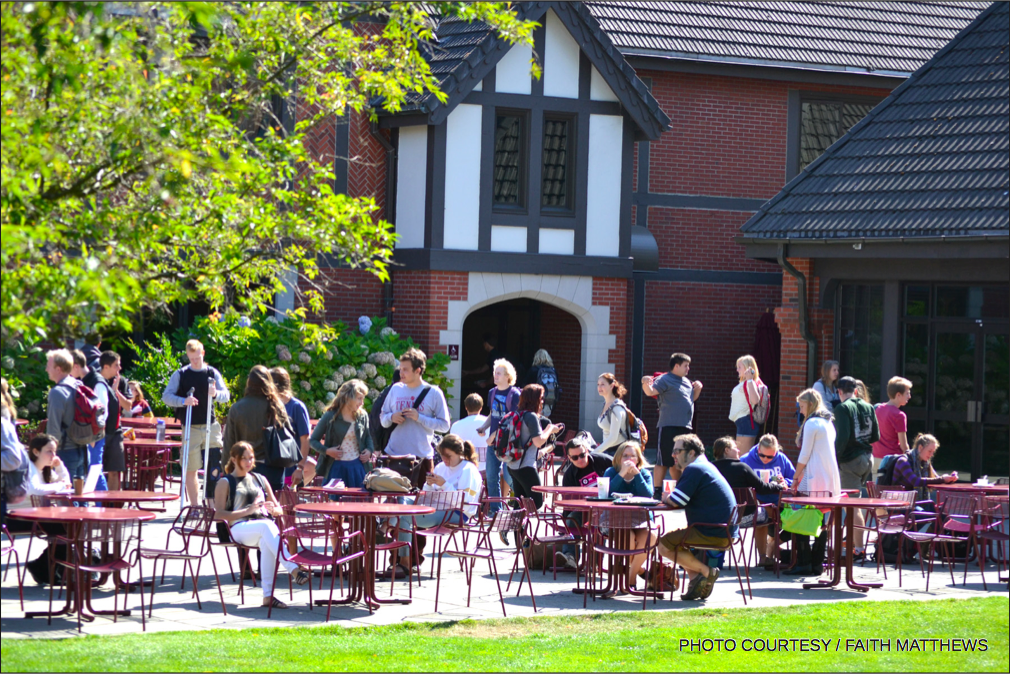
It’s 2013 and Puget Sound is fast approaching a 60-40 ratio favoring the fairer sex, with the student population currently standing at 57 percent women and 43 percent men. Though the first graduating class in 1891 included female students—speaking to Puget Sound’s long-standing promotion of gender equality, there is one small detail in our history that we tend to gloss over.
When universities became co-educational, along with the change came a term for this new subset of female students, clearly differentiating them from the male student body. In a process called metonymy (calling the members of a set something associated with that set), female students were referred to as “co-eds.”
So why are we talking about it decades later, long after the term has gone out of popular use? After being referred to as a co-ed by a professor last year, I realized that the word lingers at the edges of our student culture. The stigmas do still exist, little as we may notice them on our highly diversified and liberal campus.
Granted, many students don’t even recognize the term, which was largely shelved from usage by the 1990s with other politically incorrect castoffs. But when we joke that someone’s field of study is an “MRS major,” discounting the academic credibility of the subject, we reference the label that many women were marked with in the past, of attending college with the sole purpose of finding a husband. Such a concept is laughable on our campus today, but we would prudent to remember that not so long ago, a man walking across campus was a student. A woman was a novelty.
One troubling remnant of the term also lies within the industry of pornography, in which co-ed is synonymous with “sexy college girl” and the female student is presented as a sex object. The fact that the term has been sexualized in the pornography industry speaks to the subtle undercutting of achievement of women in higher education, easily overlooked on a campus such as ours.
Greta Austin, an associate professor of Religion and the current Director of Gender Studies, shared a few thoughts on the subject. As a historian, she holds the perspective that words tell us much about changing histories, and that the term co-ed is a prime example. For Austin, the word marks women as the “other” and men as the standard.
Austin views the term as rather problematic, if nothing else; in theory, at least, both men and women should have been referred to as co-eds. She attributes the passing of the word from common usage to the demographic shift in American higher education; with women no longer in the minority, the term is no longer openly acceptable.
Austin attended a university that had only begun to allow women within recent memory. As an undergraduate she was Editor-in-Chief of the weekly paper, and in 1989 she wrote a story celebrating the 20th anniversary of the admission of women. She interviewed a number of women who had been in those first classes.
Austin remembers that “for many, it was a difficult experience … they were seen as intruders and had to be twice as good.” However, she recalls never thinking of herself as a co-ed. I can say that until I heard myself referred to as such, I had never thought of myself as one, either.
In teaching Gender Studies, Austin often encounters students who are not aware of just how recent this history is.
“We tend to whitewash how recent these advances for women are,” Austin said.
She finds it unfortunate that our culture has the tendency to forget about the past—as a result we largely ignore that “patriarchy is very much still a part of American society.” I was surprised to hear that some of her students believe that “women are totally equal, and there is nothing left to change.”
To Austin, the term co-ed evokes an image of a perky young woman in a sweater-set and pearls. “It seems to me like an outdated slip of the tongue, perhaps more problematic than derogatory.”
At a university where a large percentage of student leaders are women, including our ASUPS Vice President, I’m not sure if problematic would be a strong enough word for many on our campus. As an adjective, co-ed is a perfectly good word. As a noun, it belongs in the past, when Joe College and Betty Co-ed were acceptable stereotypes.
Regrettably, popular culture still manages to reinforce these antiquated ideas. Maybe you caught Oscar host Seth MacFarlane’s quip about the female students onstage assisting with the presentation of awards— they were in attendance as recipients of an award for a short film contest meant to promote undergraduate filmmakers.
MacFarlane’s tasteless joke, suggesting that a “bunch of co-eds and drunk producers at an open bar” created a potential for sexual deviance, proves that the term is still very much present and more than problematic. As Puget Sound celebrates its 125th anniversary, perhaps we would do well to not only reflect on how far we’ve come, but also to recognize our role in the progress that must still be made.
PHOTO COURTESY / FAITH MATTHEWS
